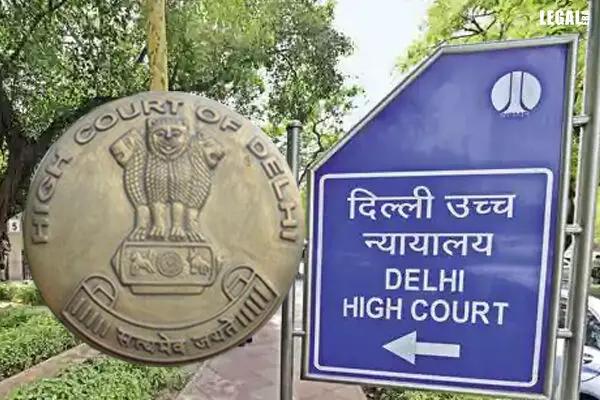- Home
- News
- Articles+
- Aerospace
- Artificial Intelligence
- Agriculture
- Alternate Dispute Resolution
- Arbitration & Mediation
- Banking and Finance
- Bankruptcy
- Book Review
- Bribery & Corruption
- Commercial Litigation
- Competition Law
- Conference Reports
- Consumer Products
- Contract
- Corporate Governance
- Corporate Law
- Covid-19
- Cryptocurrency
- Cybersecurity
- Data Protection
- Defence
- Digital Economy
- E-commerce
- Employment Law
- Energy and Natural Resources
- Entertainment and Sports Law
- Environmental Law
- Environmental, Social, and Governance
- Foreign Direct Investment
- Food and Beverage
- Gaming
- Health Care
- IBC Diaries
- In Focus
- Inclusion & Diversity
- Insurance Law
- Intellectual Property
- International Law
- IP & Tech Era
- Know the Law
- Labour Laws
- Law & Policy and Regulation
- Litigation
- Litigation Funding
- Manufacturing
- Mergers & Acquisitions
- NFTs
- Privacy
- Private Equity
- Project Finance
- Real Estate
- Risk and Compliance
- Student Corner
- Take On Board
- Tax
- Technology Media and Telecom
- Tributes
- Viewpoint
- Zoom In
- Law Firms
- In-House
- Rankings
- E-Magazine
- Legal Era TV
- Events
- Middle East
- Africa
- News
- Articles
- Aerospace
- Artificial Intelligence
- Agriculture
- Alternate Dispute Resolution
- Arbitration & Mediation
- Banking and Finance
- Bankruptcy
- Book Review
- Bribery & Corruption
- Commercial Litigation
- Competition Law
- Conference Reports
- Consumer Products
- Contract
- Corporate Governance
- Corporate Law
- Covid-19
- Cryptocurrency
- Cybersecurity
- Data Protection
- Defence
- Digital Economy
- E-commerce
- Employment Law
- Energy and Natural Resources
- Entertainment and Sports Law
- Environmental Law
- Environmental, Social, and Governance
- Foreign Direct Investment
- Food and Beverage
- Gaming
- Health Care
- IBC Diaries
- In Focus
- Inclusion & Diversity
- Insurance Law
- Intellectual Property
- International Law
- IP & Tech Era
- Know the Law
- Labour Laws
- Law & Policy and Regulation
- Litigation
- Litigation Funding
- Manufacturing
- Mergers & Acquisitions
- NFTs
- Privacy
- Private Equity
- Project Finance
- Real Estate
- Risk and Compliance
- Student Corner
- Take On Board
- Tax
- Technology Media and Telecom
- Tributes
- Viewpoint
- Zoom In
- Law Firms
- In-House
- Rankings
- E-Magazine
- Legal Era TV
- Events
- Middle East
- Africa
Delhi High Court Refers to Larger Bench on whether Order XXV Rule 1(1) of the CPC is mandatory in nature

Delhi High Court Refers to Larger Bench on whether Order XXV Rule 1(1) of the CPC is mandatory in nature
The Delhi High Court by single judge Justice Amit Bansal referred the matter Communication Components Antenna Inc vs. Ace Technologies Corp and others to a larger bench to interpret and pass an authoritative decision on whether Order XXV Rule 1(1) of the Civil Procedure Code, 1908 (in short CPC) is mandatory in nature.
An application was filed by the defendants under the Order XXV Rule 1(1) of CPC seeking a direction to the plaintiff to deposit Rs. 8 crore as security.
Per contra, the plaintiff contended that the word 'shall' in the provision has to be read as 'may' and therefore, it is not mandatory for the plaintiff to deposit security for costs with the court in all cases where the plaintiff resides outside India and does not own any immovable property in India.
After considering the facts and arguments the Court was of the view that there was a clear need to sort out the inconsistency in the views expressed by different coordinate benches of the court on the issue.
The bench framed the following issues:
1) Whether it is mandatory for the court to direct the plaintiff residing outside India and not possessing any sufficient immovable property within India, to furnish a security in terms of Order XXV Rule 1(1) of the CPC for payment of costs incurred or likely to be incurred by the defendant or whether the Court can exercise discretion in this regard?
2) Whether the proviso to Order XXV Rule 1(1) of the CPC is only applicable in respect of the suits relating to immovable property?
The Court observed that in some cases, the judges have held the provision to be mandatory in nature, in others it has been ordered that the condition is not mandatory and the court has a discretion.
The Court ordered that, "Let the matter be placed before Hon'ble the Chief Justice for constitution of a Larger Bench/Division Bench for consideration of the interpretation of Order XXV Rule 1(1) of the CPC."



